The Celwyn Newsletter Issue 15
In this issue: articles, and interviews with
Thriller writer John Yunker
Speculative fiction author, Andy T. Hanson
YA/New Adult, Urban Fantasy Author Nick Savage
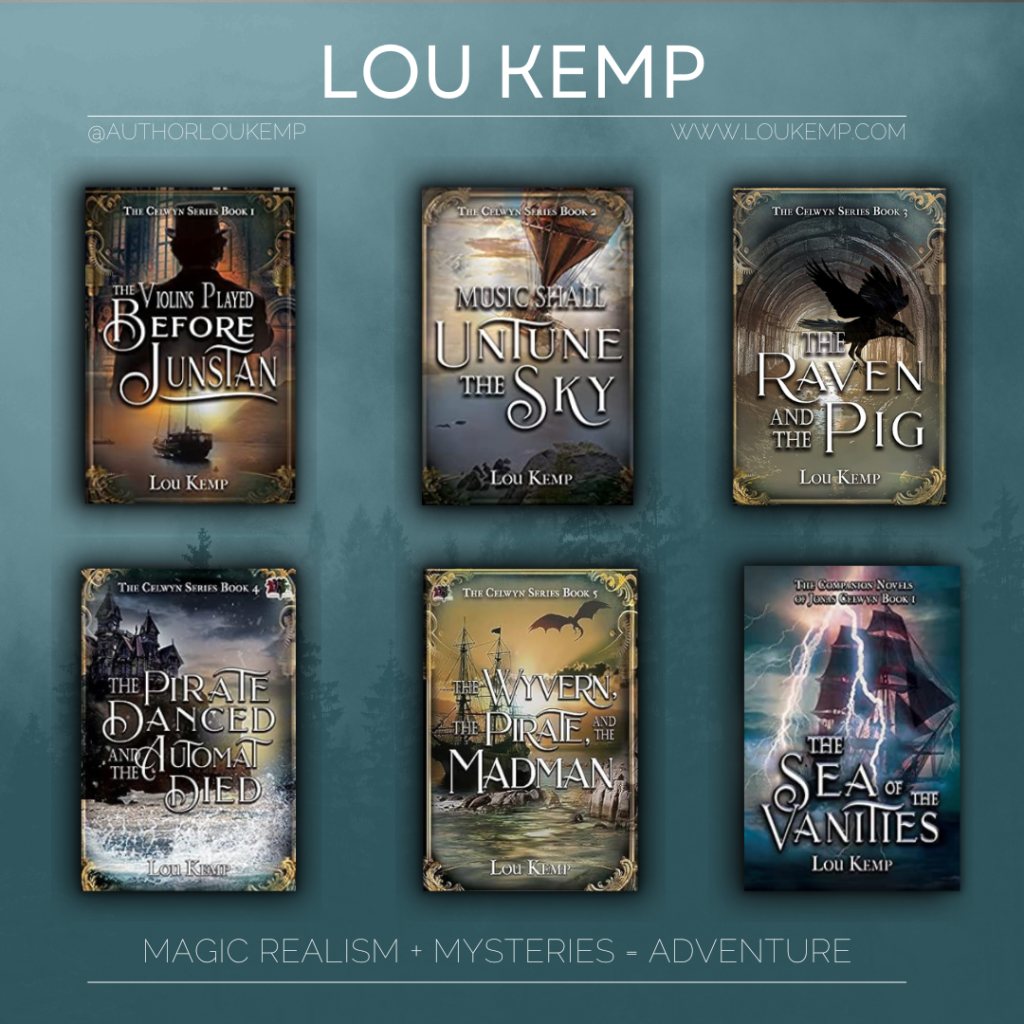
Celwyn’s Cats

She is SO exhausted after editing.
Smashwods Sale!
Now is your best chance to find the entire ebook Celwyn Series collection for a promotional price at @Smashwords as part of their Annual Summer/Winter Sale! Find my books and many more at https://www.smashwords.com/shelves/promos/ all month! #SWSale2024 #Smashwords
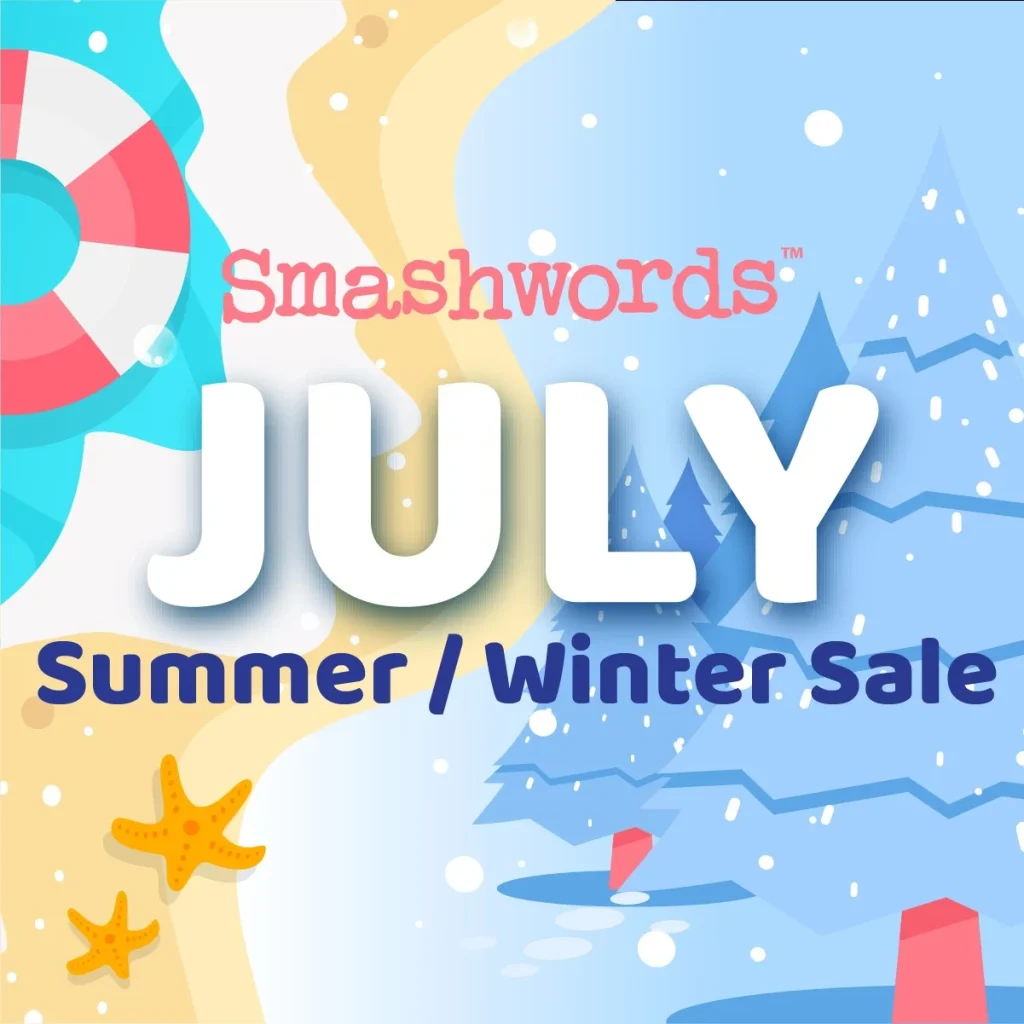
An Interview with Author John Yunker
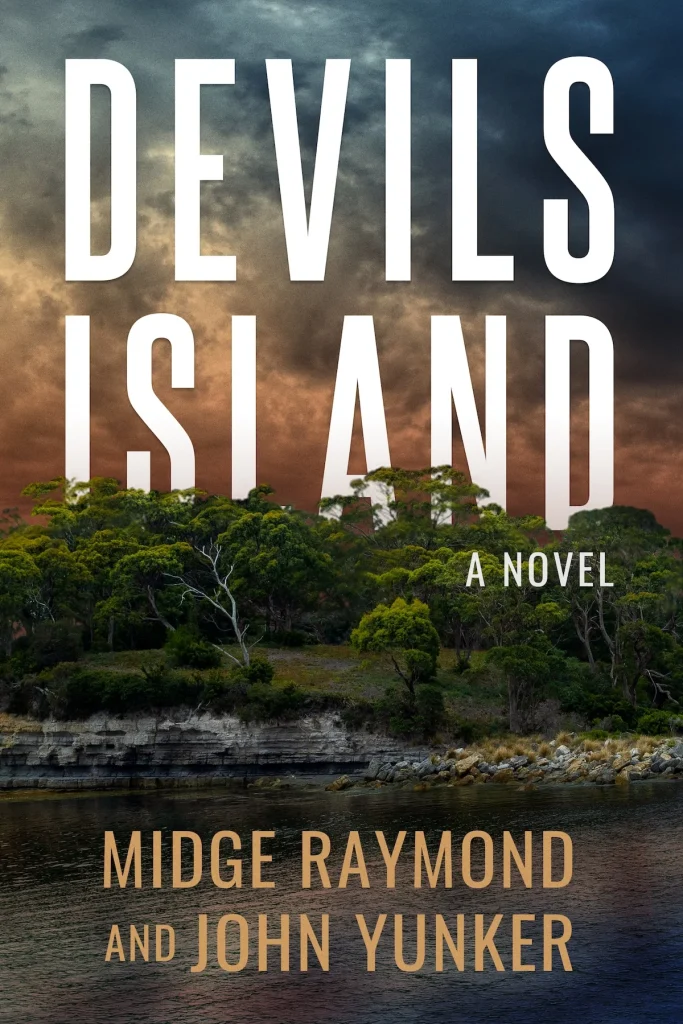
On a remote island off the coast of Tasmania, an Australian wilderness guide embarks on a four-day hike with six guests—and arrives at their destination with only two.
An Interview with Author John Yunker
Bio
John Yunker is an Oregon-based author of the thrillers The Tourist Trail and Where Oceans Hide Their Dead. He is co-author with Midge Raymond of the forthcoming mystery Devils Island (Oceanview Publishing, 2024). Learn more at www.MidgeandJohn.com.
How would you compare Devil’s Island to regular mysteries?
I often refer to Devils Island as an eco-mystery because the environment and animal protection are overarching themes. But it more commonly described as a “locked-room mystery.” In this case, the locked room is a remote island off the coast of Tasmania. I think what might make it slightly unique is the novel’s set-up – we leveraged the five-act structure of Hamlet for the novel.
Which of your books was the hardest to write, and why?
My most difficult bulk to complete was Where Oceans Hide Their Dead. It took about seven years of writing and much more rewriting. This is the darkest novel I’ve written because it deals with some difficult and timely issues, like drug addiction and the horrors of the animal industrial complex.
Does your own reading stay within your writing genre, or do you read a different genre for yourself ?
I read across genres and my writing most likely reflects that, as sometimes my novels are called “literary” other times called “thrillers.” While I appreciate that a genre label help readers find books they want to read, as a writer, I worry that these labels get in the way of publishers taking chances on work that don’t fit cleanly into any one category.
Do you have a sample of what you discovered that was especially interesting when you did research for your books?
For Devils Island one of the most interesting bits of research is learning that the Tasmanian Devil, an animal about the size of a small dog can devour a large animal like a kangaroo within hours—muscle, organs, fat, bones, even fur—leaving nothing left.
Will there be a sequel to Devil’s Island, and if so, what will it focus on? and will it have a solid ending or leave things open for more?
We’ve left the door open to a sequel, one that would take place in Ashland, Oregon. So we’ll see. I have a difficult time letting go of characters, which often leads to sequels. In fact, my novel Where Oceans Hide Their Dead is a sequel of sorts to The Tourist Trail.
What do you think new authors should decide first, before they begin their book? Should it be who they are writing for (themselves or their audience)? Do you have other criteria you would suggest?
I always aim to write the book that I most want to read and I recommend writers do this as well. Because, in the end, regardless of whether you find an agent, a publisher or readers at the very least you will have pleased the most important reader of all: yourself. But, that said, during the editing stage it’s important to be able to see your work as other readers will see it. My partner Midge often quotes Stephen King: Write with the door closed; rewrite with the door open.
How important is site research for the location where your books take place, and why? What should a beginning writer consider about location in their novels?
Site research is the most exciting part of writing, particularly in the case of Devils Island, where we hiked the island off the coast of Tasmania where this novel takes place. While I don’t believe it’s essential to visit every place you write about, it certainly can’t hurt.
Can you see yourself using Ai in your books? On what part and why?
I’m amazed at how well AI engines produce cleanly written sentences. But humans are far messier, our voices more distinct, than any computer algorithm. I don’t really see AI as a threat to creative writing – though perhaps a threat to predicable and voiceless writing. That said, writers deserve to be compensated by any tech company that wants to scan their work to train their algorithms. The very reason AI appears “magical” is because it was trained on our hard work.
New Release Features
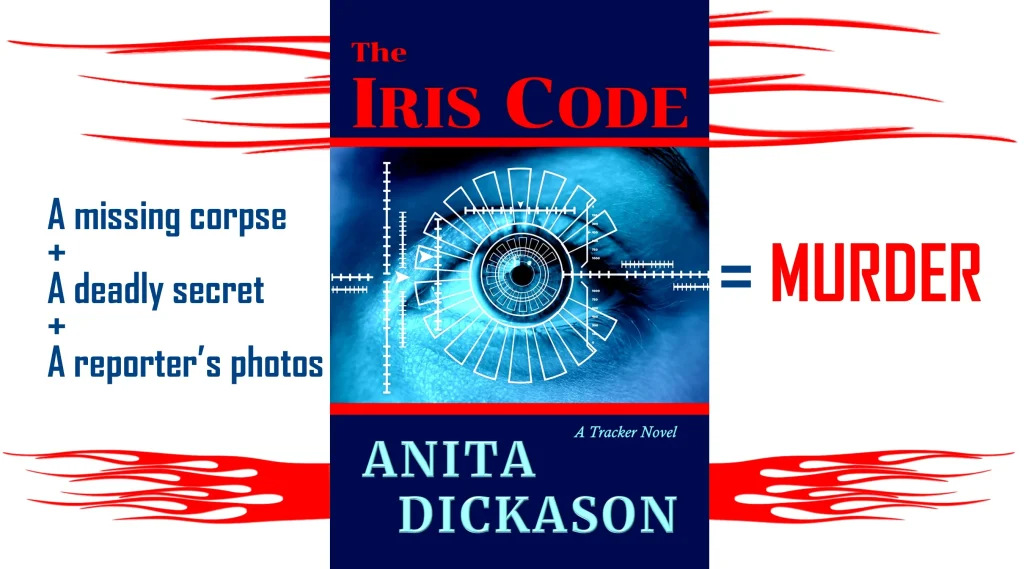
A local reporter and photographer’s canine search and rescue training at an abandoned farm outside of Fredericksburg, Texas, takes a bizarre twist. Riley Phillips’ dog, Milo, alerts on the real deal—a corpse with a bullet hole in his head.
Riley’s nose for news is already twitching over the gruesome discovery. When the body turns up missing, her spider senses kick into overdrive. Who doesn’t want the man identified, and why? Are her crime scene photographs the only clue?
What Riley’s camera captured puts the FBI Tracker Unit on high alert, and Riley in a killer’s crosshairs. Learning the identity of the mystery man takes on an ominous urgency.
Can FBI Tracker Cody Lightfoot and Riley find the answer in time to stop a deadly attack? Or will they be the next victims?
Step into Serenity: Your Journey Awaits
Discover a sanctuary within your mind. Written by psychologist Anne E. Beall, this book takes you on a series of serene adventures, from secluded forests to calm beaches, immersing you in vivid, tranquil scenes that foster relaxation and peace.
You’ll become engrossed in these meditation journeys, each guiding you deeper into its unique setting. As the main character of every story, you embark on a richly detailed adventure, with vivid imagery that transforms you into an active participant. Whether you’re wandering along pristine beaches, paddling to ancient lighthouses, or journeying towards enchanted royal castles, tranquil adventures await you, all from the comfort of your home.
This is more than just a book; it’s a companion for moments when you need to escape the stresses of the world, guiding you to a serene space within. Whether you choose to read in quiet solitude or listen as the narratives unfold, these journeys offer you a personal haven of tranquility.

Interview with Author Andy T. Hanson
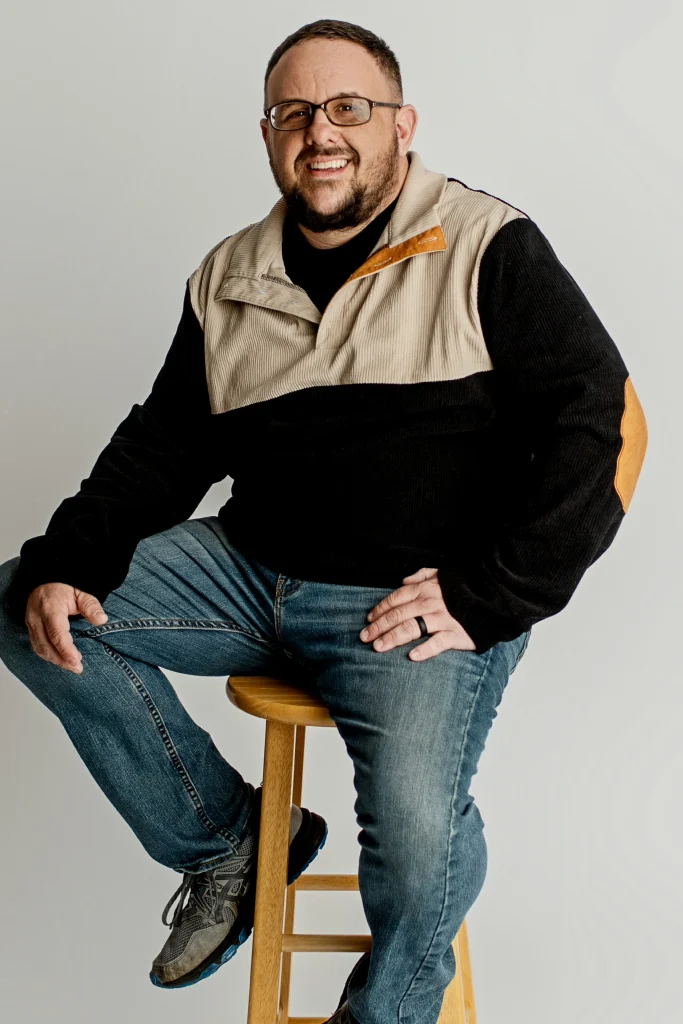
Andy T. Hanson is an author of science fiction, general fiction and dystopian horror. After driving Abrams tanks in the US Army, Andy settled into life as a regional-stage actor. He parlayed that passion first into playwriting – most notable of which is Molly’s Chamber, his modern-day take on the old Irish folk song Whiskey In The Jar. He then graduating to screenwriting and achieved a quarter finalist statis for his script at a former Los Angeles Film Festival. On the strength of their modest success, he tried his hand at the ultimate goal; Sci-fi novels. His first foray into that magical world is The Despot Chronicles, a dystopian three-part epic series. Calamity, book 1, is set for release on 10/26/24 by 4 Horsemen Publications, Inc. Andy is thrilled to occupy a slot among their fantastic stable of authors.
Have you thought of writing nonfiction? If so, what kind, purpose, and time period? I plan to write a layman’s take on skepticism and stoicism and how embracing both has changed my outlook on life profoundly. Hopefully, I’ll get to work on that, as well as wrapping up a short story collection I currently have in the works.
Discuss an aspect of your writing process. I love using the 3rd person narrator, shifting viewpoints between various characters. You can give your reader little easter eggs peppered through each POV that has import for the character themselves, whether immediately or later, as well as connecting other POV arcs. All the while hints can be dropped for the overall conclusion. It is a wonderful way to create a feeling of a kind of whodunnit-type work for the reader, which captivates them and keeps the pages turning.
How many books will there be in this current series? What will it focus on? And will it have a solid ending, or leave things open for more? There will be three books in the Despot Chronicles series. I set out to editorialize, in a way, how tyrants and authoritarians take advantage of Calamity, as in book 1 of the Despot Chronicles, to establish their Control of their subjects, as in book 2, but ultimately they collapse in the end. The same occurs in book 3, because the power the authorities wield was built on sand. Sooner or later, they get exposed. The immediate story will have a satisfying and complete conclusion, while the wider world I’m building around the story will branch off from that conclusion.
For someone who hasn’t read your books, can you talk about the theme within the books? The theme is showing regular people who are placed in otherwise unthinkable situations. I want readers to commiserate with the characters and their decisions, and even understand the reasoning behind the some of the choices of the characters—some of which they won’t approve, and thus learn something true about themselves and humanity in general along the way.
YouTube News
An Interview with Nick Savage
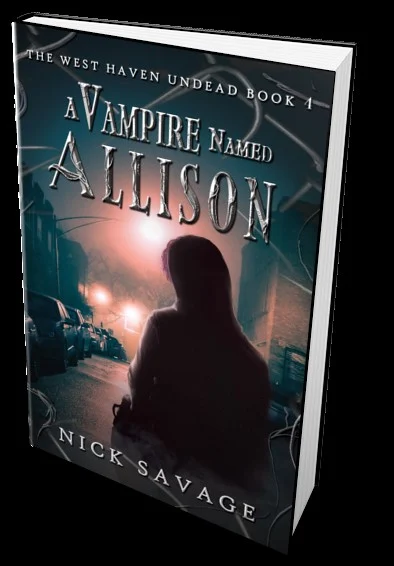
Nick Savage began writing at a young age starting with music and developing lyrics before transitioning to screenplays and finally into novels. He grew up in Chicagoland studying creative writing and music. In the Windy City he was surrounded by a love of good food and endless things to inspire him. After getting married, he and his wife moved to Florida. Currently, they live outside Orlando and enjoy spending time with their two cats or going to the magical kingdom.
Describe what happened when you killed off one of your favorite characters? Do you think it is necessary to do this to keep a series fresh? Or does knowing their favorite character is safe endure readers to you? When killing off one of my favorite characters, I always do so when necessary. I don’t believe that any character in a book should be wearing plot armor to be safe. The West Haven Undead series has many deaths and all are needed to drive the story forward. I think readers are drawn to me to see who dies next over knowing they are safe.
Is there something about your books/your point of view that you think readers should know?
A Vampire Named Allison is a great look at mental health issues told from a left-field sort of way. To me, having those deep metaphors makes any writing more enduring and relevant than stories without symbolism and subtext.
Can you see yourself using Ai in your books? On what part and why.
AI is a tricky subject. I will never use AI nor will I ever condone the use of it as a substitute for thought in writing. But that same AI can be used as a great tool. Grammar and spell checkers run on AI and while far from perfect, help on that end.
Does your own reading stay within your writing genre, or do you read a different genre for yourself?
My reading varies greatly. I love true crime but could never write that. While I do love fantasy novels, I also write romance, but hate reading it. I think my childhood scarred me against it, especially Regency romance. I loathe the idea of a damsel in distress saved by a knight in shining armor. I think that trope has contributed to many false expectations of what love and relationships should be.
How many books will there be in this current series? what will it focus on? and will it have a solid ending or leave things open for more?
After A Vampire Named Allison, there is only one more book in the series. Five books in all. While the story in this series will be wrapped, because it’s contemporary, the world is open for new stories within the universe.
How Do You Name Your Novels?
Authors from past newsletter issues were asked how they named their books:
Finding the right title is always an interesting journey for me. Sometimes, it throws itself at my feet, and, other times, it takes a moment to present itself. In every instance, when the title does come to me, I always know when it’s the right one. Somehow, it fits like a shoe does for the right-sized foot.
Tricia T. LaRochelle, author of the award-winning Sara Browne Series and Sun in My Heart.
Since mine are modern-day re-imaginings of Jane Austen’s books, I make sure the title reflects some word or concept from the original novel, while reflecting on what my book is about. A.R. Farina Author of Welcome to Mansfield.
Tony Farina, author of Welcome to Mansfield
My cover designer suggested the current title for The Techno Mage, as the one I’d had was difficult to pronounce. My mum suggested the title for Rise of the Sky Pirate, and I loved it so much, I kept it. For the Elementals trilogy, I thought up individual titles that made sense with one another as well as within the urban fantasy genre.
S.W. Raine, author of Rise of the Sky Pirate
I name my novels in two ways. First, I use a working title that gets the point across to me and motivates me to write. Most of the time, (I think only one book has kept its working title) they change after I’ve written. Once I’m done with the manuscript, I try and find a line within that speaks to a title feel while capturing what the book is about. Short of that, I write a list and revise it until it doesn’t suck.
Nick Savage, author of A Vampire Names Allison
In my Cabin by the Lake Mysteries I started each book with “Death of …” because I wanted to indicate that these were murder mysteries and each title would tell the reader something about the victim. In my Liza and Mrs. Wilkens series “The Death of Goldie’s Mistress” the title came naturally because Goldie is a cat and it’s her owner who has died.
Linda Norlander, author of The Death of Goldie’s Mistress
I strive for a balance between meaningful and marketable – a pitch which slides off the tongue. My goal is for a title that’s memorable like a catchy song or repeated phrase. Titles like “Roman’s Reckoning” and “Mikael’s Moment” were easy to create. “Grabbing A Slice of Minnesota Nice” was trickier, but I think it carries that special sauce which audiences will remember – even if they don’t remember every detail in the book itself.
Lucas LaMont, Author of The Chronicles of Fate Series
I called my first book “A Sweet and Fitting Death.” It came from a poem by the Roman poet Horace: “It is sweet and fitting to die for one’s country.” The publisher thought that WAY too over the top and changed it to “Death on the Sapphire,” after the fictional Sapphire river, where much of the book takes place. From then on, I kept simple: “The Greenleaf Murders” and “The Turnbull Murders.”
Richard Koreto, author of The Turnbull Murders
Their names always refer to an essential feature, origin, cause, main character or place—a foundation, without which the story would crumble.
Taggart Rehnn, Author of The Door:Souls in Peril
My novel titles are an explanatory metaphor of the stories themselves. For my first novel, Mackinac Island Nation, it meant that the small island was about to become its own country. My upcoming novel’s title, Whither Utopia, is a play on words: Whither means “where,” but it sounds like “wither,” which implies Utopia is dying, which is actually what’s happening.
Erik Deckers, author of Mackinac Island Nation
In my cozy mystery series starring three senior citizen ladies, I have used plays on words. The first, about a jewel robbery, was condensed from There’s No Jewel Like an old Jewel, to simply Old Jewels. The second, No Stone Unturned, takes place at Stone Mountain, Georgia. The third, Hare Today, Gone Tomorrow, involves a lost rabbit, a dog, and a murder. It’s a fun challenge.
Pat Pratt, author of Hare Today Gone Tomorrow
I name my books based on an overall theme. Or, I wait for the title to work its way out of the narrative. Sometimes it’s already named at the beginning of writing it, other times it’s when I’m editing for the 5th time!
Ty Carlson, author of The Bench
Typically, the title will come from a phrase or word in the story. It is a rare occasion, I know the title in advance. It still doesn’t mean I will use my first selection. It all depends on how many other books have been written with the same title.
Anita Dickason, author of the Iris Code
I have always wanted to become a highly literate poet. Fate decided otherwise and turned me into a noir storyteller. Stubborn as I am, I tried to write my books in a poetic style. But the most excellent satisfaction I garnered from my lyrical book titles. What, for instance, do you think of “Scars Of The Heart,” “The Left-hand Path of Tantra,” “Cadavre Exquis,” “Seven Letters To My Call-Girl,” and many more?
Bob Van Laerhoven, author of Scars of The Heart
For my most recent book and I got that title after thinking through about 40 different options. I decided I wanted to do a series and Embracing would be the name of the series, and the focus of this particular one would be about finding inner calm.
Anne Beall, author of Embracing Calm: Meditation Journeys for Inner Peace
I believe that the title of a book should reflect the essence of the story with a twist to interest readers. Brick, Lime and Moonshine is about employees who work for Washington brick and lime company until it closes during the Great Depression. They become rumrunners and create the Brick and Lime Club where friends can drink illegal liquor. The odd relationship between brick, lime and moonshine is the twist.
Victoria Ventris Shea, author of THE GHOSTS OF WHIDBEY ISLAND
In the case of Devils Island, the title came easily as the book concerns the Tasmanian Devil, which has been struggling due to a contagious disease. A number of the non-infected devils were relocated to a remote island off the coast of Tasmania (which is true). And the locals now refer to the island as “Devils Island” (not true).
John Yunker, co-author of Devils Island (coming September 2024 from Oceanview Publishing)
My first historical fiction novel is part of a biblical quote, the second book is a famous song title from the 1920s, and the third of this series (July release) is named after the main character. My thriller had a different working title, but included a date that created a muddy transition from title page to prologue to first chapter, so I changed it to the last sentence of the first chapter.
Mim Eichmann, author of TAYVIE’S STORY (2024).
I changed the title of Chasing the Sun when I realized the sequence of action moved across the Continental United States just as the sun does. Holmes, Moriarty, and the Monkeys involved members of the Holmes and Moriarty Society, including statues of the three mystical monkeys sitting on the fireplace hearth. They were mysteriously joined by the fourth monkey, Sezaru.
Bill Gunn, author of Chasing the Sun
For the Transit series, I’m very specific about the meaning. Normally, it comes from the epigraph, but sometimes, it’s more obscure. The title must include the theme, if possible. For some standalone books, however, the title comes to me with the idea. For example, Beneath Gehenna came from my original scribbled notes, as did the Beans of Anafi.
—Benjamin X. Wretlind is the author of the Transit anthropological sci-fi series and many other novels.
What is New with the Celwyn Series?
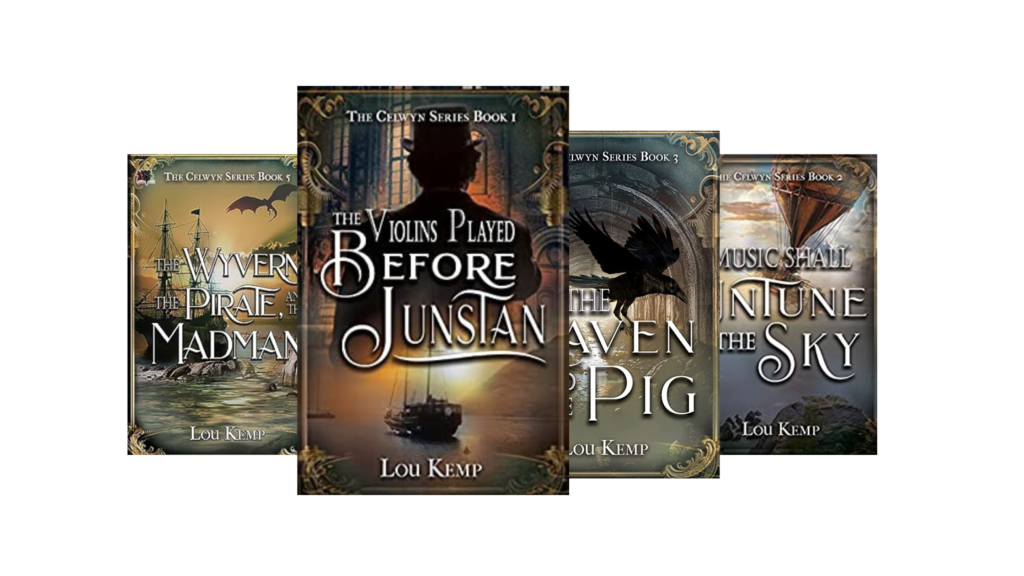
What is new with the Celwyn Series?
Book 6 is through editing and my publisher has ordered the cover. Yeah! Swango, will be out late this year and spells a shift in genre for the fun-loving magician and his band of merry men. You still have time to read book 5, The Wyvern, the Pirate and the Madman—which is a set-up for book 6.
Here is what will probably be the final version of the blurb for book 6:
“A magician, a widower, and an automat travel the world… but nothing has prepared them for Swango.
In 1870s Singapore, Celwyn survives a vicious attack only to find it may take even more luck to endure his own family. His brother Pelaez has returned, insisting on his innocence, and their father Wolfgang Augustus Griffin has his sights set on Nemo’s marooned crew. As the Nautilus travels to Beirut, Prague, and Findbar Island, they meet Swango, a seemingly innocent clairvoyant and drinking buddy from the magician’s past, a man who appears to have more help with his predictions than most spiritualists. Meanwhile, Nemo must finally confront the secrets of his own past.
When the magician and the others leave Singapore, they are grieving; a member of their family has been murdered in Prague.”
Book 7 opens as the Nautilus journeys to the Castell de Ferro on the southern Iberian coast in Spain where Doctor Jurik Lazlo is hiding. Captain Nemo has been searching for him for a long time.
For book 7, Lucky and Mrs. Nemo, progress has been made since the last newsletter. It is always good to report progress, even if a few unexpected things occur along the way that make things interesting. Sometimes I know what I meant to say, and sometimes it is a mystery. Celwyn and company are adjusting to what Swango has wrought; and some of them are more gracious about it than others. There has been another attack on Findbar Island by a mysterious villain who is after the flying machine. This time it isn’t Pelaez, but that doesn’t mean Celwyn’s brother is innocent at all.
Miss McFein, the beautiful vampire Celwyn is in love with, discovers the ghost of Findbar and is thankful she can run fast. The new scientist, Doctor Martha Gluck, known as Lucky to her friends, has joined them to take over the construction of the flying machine. She is also an American sharpshooter and can drink them under the table. And Lucky is quite fortunate, perhaps lucky; she meets Pelaez during an extremely dangerous situation he finds her fascinating.
Book 8 is still safely put away (130 pages of the first draft) until I have book 7 under control and mostly edited. At the rate I’m going, that is late July. I couldn’t feel virtuous going forward with it unless book 7 is on track.
The near future holds another companion book for the series, untitled, and it will star Pelaez while he demonstrates his devious ideas of fun.
The Science Fiction Writers of America Stance on the use of AI
The Science Fiction Writers of America provided the following info when I asked their official opinion of Ai.
SFWA’s comments to the US Copyright Office on generative AI are here: https://www.sfwa.org/2023/11/03/sfwa-comments-on-ai-to-us-copyright-office/
SFWA has also signed on to a joint action called “Creators Call for Action on Artificial Intelligence (AI) Copyright Exceptions”: https://www.sfwa.org/2023/07/20/nwu-joint-action-ai-copyright-exceptions-authors-guild-ai-ml-open-letter/
And here’s a list of articles and essays addressing generative AI, written by SFWA members: https://www.sfwa.org/2023/03/03/sfwa-members-weigh-in-on-ai-machine-learning-applications-considerations/
-Victoria Strauss SFWA
Shameless Buy Links to booksellers who carry the Celwyn series.
The Violins Played before Junstan book 1
https://books2read.com/celwyn01
Music Shall Untune the Sky book 2
https://books2read.com/celwyn02
The Raven and the Pig book 3
https://books2read.com/celwyn03
The Pirate Danced and the Automat Died Book 4
https://books2read.com/celwyn04
The Sea of the Vanities. Companion book.
https://books2read.com/celwyncompanion01
The Wyvern, the Pirate, and the Madman Book 5
https://books2read.com/celwyn005